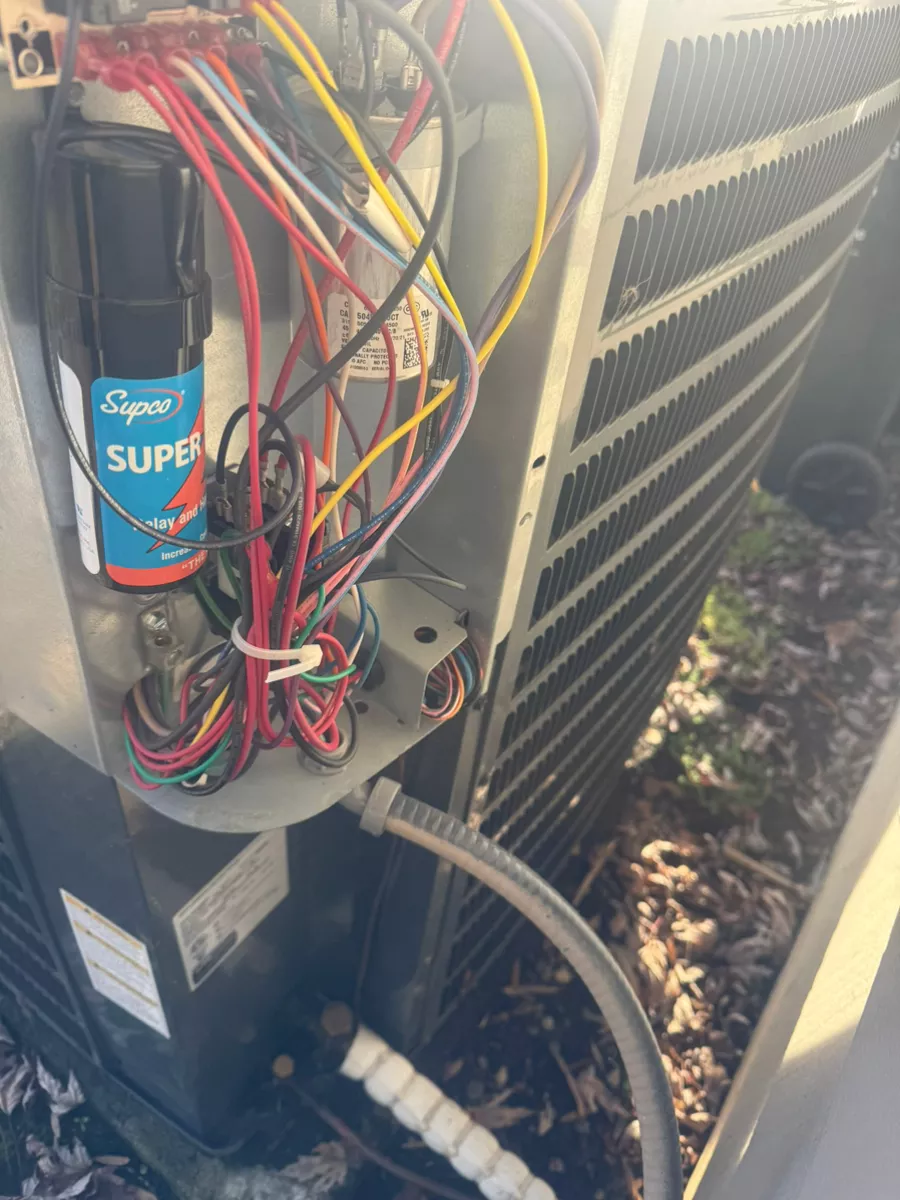Portland Homeowners: Troubleshooting Common AC Startup Issues With Expert Advice

Sure, summer temperatures in Portland aren't always sweltering, but they can get high enough that having a reliable AC is worth its weight in gold. If your air conditioner is not starting, your first step is to troubleshoot the issue to see if you can fix it yourself.
Keep reading to learn basic AC troubleshooting information, including:
- Common reasons your AC won’t turn on
- Checking your thermostat and power supply
- Airflow problems: Dirty filters and clogged drain lines
- Electrical and component failures: Capacitors and contractors
- Preventative maintenance for reliable AC performance
If your attempts at troubleshooting don't fix the problem, or you feel any repairs are out of your comfort zone, don't hesitate to call a professional.
Need Fast AC Repairs in Portland? Contact Four Seasons Today!
Good, old-fashioned Portland AC repairs start with Four Seasons. Our knowledgeable, NATE-certified technicians have all the expertise to get your AC up and running as soon as possible.
Common Reasons Your AC Won't Turn On
AC systems can fail to turn on for various reasons. Sometimes, they just need a simple DIY fix. Other times, a professional repair or replacement is necessary.
Common causes include:
- Thermostat issues. Anything from an incorrect setting to wiring issues can stop your AC from turning on.
- Tripped circuit breakers. Surges or overloads can cause the breaker to shut off power to the AC.
- Clogged air filters. Clogged or dirty filters don't allow optimal airflow, which can lead to the system overworking and overheating.
- Capacitor or contactor failures. These are important electrical components that start and run your system. If they wear out, the system can't turn on.
- Condensate drain blockages. Many systems are programmed to shut off if the drain pan becomes full to protect them from damage.
Checking Your Thermostat and Power Supply
If your AC won't turn on, start by troubleshooting the thermostat and power supply.
- Make sure the thermostat is set to cool or on instead of auto and is set below the current ambient room temperature.
- If the screen is completely unresponsive or blank, try replacing the batteries, if applicable.
- Check the circuit breaker box to see if any have been tripped. Reset any that have.
- Some systems have an emergency shutoff switch on the outdoor part. Make sure the outdoor system is on.
Airflow Problems: Dirty Filters and Clogged Drain Lines
Airflow problems are usually pretty easy to DIY fix. However, they're essential to handle quickly because they can cause the system to overheat or shut off entirely.
- Ensure the air filter is clean. Your system's manufacturer recommends checking filters every 1-3 months.
- Double-check that the condensate drain line is cleared. If it's clogged, the system can shut off for safety purposes. Use a wet/dry vacuum to suction out a mild blockage, or attempt to clean it using a vinegar solution.
Electrical and Component Failures: Capacitors and Contactors
Clicking or humming sounds while turning on your AC are key indicators of electrical component problems. These issues are best left to professionals:
- Capacitor failure. The capacitor is responsible for the initial jolt of electricity that gets the compressor and fan motors running. Capacitor problems are often accompanied by humming or clicking sounds.
- Faulty contactor. The contactor controls the power flow to the compressor. Contactor issues mean the system won't start up.
- Loose or damaged wiring. Frayed, damaged or loose wires can't effectively move electricity where it needs to go to operate your AC system. A professional should handle these issues.
Preventative Maintenance for Reliable AC Performance
Investing in routine maintenance is the best way to keep your system running reliably year after year. This regular upkeep reduces the risk of sudden breakdowns while extending your system's lifespan. Keep these key tips in mind:
- Get seasonal tune-ups. Ideally, your system should have a tune-up before peak summer months annually to keep it in tip-top shape.
- Change air filters regularly. Keeping air filters clean and changing them regularly improves overall system efficiency and prevents airflow problems.
- Clean around the outdoor unit as necessary. Occasionally, check your outdoor unit for debris or dirt buildup. These can clog ventilation and cause your system to overheat.
- Have refrigerant levels checked. During tune-ups, make sure the refrigerant levels are checked. Low levels can indicate a leak, which should only be addressed by licensed professionals.
Keep Your AC Running Smoothly — Schedule a Tune-Up With Four Seasons!
At Four Seasons, we don't stop at AC repairs. Extend your AC's life span with our routine tune-up services. The hundreds of 5-star reviews we've accrued don't lie — we get the job done right, 100% satisfaction guaranteed.
- Tagged:
- Troubleshooting
